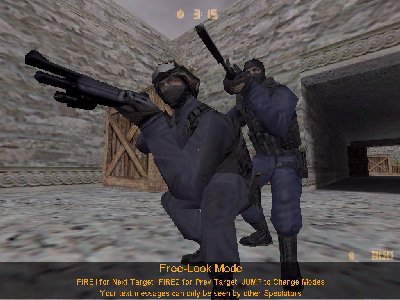|
|
|||||||||||||||||||||||||||||||
Entertainment, Movies, Television and Games!Hello and welcome to the Lilith Press Magazine's section for articles about Entertainment, Movies, Television and Games! If you are looking for music there is a separate section for music. Our purpose here is to introduce you to other forms of entertainment which will enlighten, educate and amuse you.
Sincerely,
Games and RPGs
Gambling and Casinos
Movies and Films
Television
The Cinematic Shackles: The Suppression of Russian Filmmakers under Putin's Autocratic Rule
By Chaz G. T. Patto - June 2023. Under the autocratic rule of President Vladimir Putin, the Russian film industry has experienced significant constraints and limitations. Independent filmmakers, known for their creative and critical voices, have faced numerous obstacles and stifling censorship. In this essay, we delve into the ways Putin's regime hampers artistic freedom and explore the potential for a stronger and more vibrant Russian film industry without his restrictive influence. Censorship and Self-Censorship Putin's autocratic rule has led to heightened state control over the film industry, resulting in censorship and self-censorship. The government's influence extends to film funding, script approvals, and distribution licenses, effectively limiting the scope for dissenting voices and alternative narratives. Filmmakers often find themselves constrained by a narrow range of permissible subjects, avoiding sensitive political or social topics that may invite scrutiny or reprisals. Limited Funding Opportunities The Russian film industry suffers from limited funding opportunities, with state-backed productions dominating the landscape. Funding is often contingent upon adhering to pro-government narratives and serving as propaganda tools, hindering the creative autonomy and diversity of artistic expression. Independent filmmakers, lacking access to substantial resources, struggle to bring their stories to the screen, impeding the growth of a vibrant and diverse film culture. Suppression of Dissenting Voices Filmmakers critical of Putin's regime face an uphill battle to have their work seen by a wide audience. Films that challenge the status quo or highlight societal issues face significant hurdles in distribution and exhibition. Independent films with dissenting perspectives often encounter restricted access to theaters or are subject to last-minute censorship, limiting their impact and reach. This stifling environment deprives audiences of diverse viewpoints and discourages filmmakers from taking creative risks. Putin's Celebrity Agenda Putin has spent time courting and befriending sycophantic actors like Steven Seagal and this exemplifies a broader trend in which the Russian government seeks to co-opt and support celebrities who align with its political agenda. This approach can be seen as an attempt to manipulate public opinion and create a positive image both domestically and internationally. However, it is essential to approach such relationships with a critical lens, recognizing that they can be influenced by political expediency and propaganda tactics rather than genuine artistic appreciation or merit. And for actors like Steven Seagal that are motivated by money they have abandoned morality in favour of befriending the wealthiest man in Russia. Brain Drain and Exile The oppressive atmosphere for filmmakers in Russia has led to a significant brain drain within the industry. Talented filmmakers, disillusioned by the lack of creative freedom and opportunities, seek artistic and professional refuge abroad. This exodus of creative minds weakens the Russian film industry, depriving it of fresh perspectives, innovative storytelling, and diverse artistic voices. International Isolation Putin's autocratic rule and the limitations imposed on Russian filmmakers have resulted in international isolation for the industry. Many critically acclaimed Russian films struggle to gain international distribution or recognition due to the political environment surrounding their production. The lack of international exposure diminishes the global influence and impact of Russian cinema, preventing it from realizing its full potential as a powerful cultural export. The Potential for a Stronger Film Industry A Russian film industry free from the constraints of Putin's autocratic rule holds immense potential for creativity, diversity, and international recognition. Without censorship and state interference, filmmakers would be emboldened to explore controversial and thought-provoking subjects, fostering a more robust cinematic landscape. The removal of restrictions on funding and distribution would empower independent voices and facilitate the emergence of a flourishing independent film sector. The Russian film industry has suffered under Putin's autocratic rule, with filmmakers facing censorship, limited funding, and restricted access to audiences. The stifling environment has impeded creative freedom, led to the brain drain of talented filmmakers, and isolated the industry on the international stage. However, a future without Putin's restrictive influence holds promise for a stronger and more vibrant film industry—one that embraces diverse perspectives, tackles pressing societal issues, and garners global recognition. Removing the shackles of censorship and empowering filmmakers would unleash the full potential of Russian cinema, enriching the cultural landscape and reinvigorating the art of storytelling. See Also:
|
|
||||||||||||||||||||||||||||||
|
Why Black Jack Dealers have a Mathematical AdvantageBy Chaz G. T. Patto - April 2024. A blackjack dealer has a mathematical advantage over players primarily because of two factors: The rules of the game and the way payouts are structured. Rules favor the dealer: In most blackjack games, the dealer must follow a strict set of rules governing when to hit (take another card) and when to stand (stop taking cards). Typically, the dealer must hit until their hand reaches a certain total, often 17 or higher. This means that even if players bust (go over 21), they can still lose to the dealer if the dealer's hand is lower than 21 but higher than the player's hand. Additionally, the fact that players must act before the dealer can lead to strategic decisions that are disadvantageous to the players in the long run. Payout structure: In most casinos, the payout for a winning blackjack hand is typically 3:2, meaning a player wins 3 dollars for every 2 dollars bet. However, when the dealer wins, the player loses their entire bet. This payout discrepancy means that even if players win as often as the dealer, they will still lose money over time due to the lower payouts for their wins compared to the losses when the dealer wins. These factors, combined with the mathematical probabilities of drawing certain cards, create a built-in advantage for the dealer over time. While individual players may experience short-term success, the rules and payouts ensure that the house (represented by the dealer) has the edge in the long run. Ergo, the best way to make money while playing Black Jack isn't to be the gambler. You have to be the dealer, because then the math is rigged in your favour.
Best Mini-Games in the Yakuza FranchiseThe Yakuza series has, without a doubt, been a significant video game success over the last two decades, selling a total of 14 million copies worldwide. A classical "beat 'em up'' where you follow the protagonist and fight hordes of men that are after you, with the story closely resembling a yakuza (Japanese mafia) crime thriller. With SEGA releasing another title recently, we thought it might be a good idea to look back and remember the exciting mini-games the series has offered. The game was quickly famous for its fight scenes, various side missions, and mini-games where the players could earn extra money and gain new experiences and just have some time to relax and have fun. Hit the Poker Tables Like in other games that feature these mini-games, the gambling and casino category are the most popular. Poker and blackjack, as well as a few exotic ones like Cee-lo and Koi-Koi. With later instalments in the series, these gambling games became refined, almost indistinguishable compared to online casino websites. And they remain a go-to for fans when searching to take a little break from the main game and all the fighting and skull cracking. Dance All Night While it might not be your first association with a mafia brute who beats up people for money, Kazuma Kiryu's main character has some killer dance moves. That is if you are any good in the mini-game. We are, of course, talking about the Disco mini-game. The game is rhythm-based, although some people complained the tempo is off. But once you see the characters making cheesy and hilarious disco moves, that becomes irrelevant as you are just laughing and enjoying the show, not even caring if you have hit the button at the right time. Very similar to the previously mentioned Disco mini-game, there is the Karaoke mini-game introduced in Yakuza 3. Because of its popularity, it has stayed in every release since its release. It features a wide variety of songs and different variations of the simple rhythm game. This mini-game achieves several things. First, it gives the game's composers a chance to share their music with the world. Secondly, it creates a fun atmosphere. Once again, we can laugh at the silliness of Yakuza brawler-busting disco moves. It is a welcomed fun and short break from the general seriousness of the themes throughout the game. Racing and Business The game also features car racing, although not in a way one might expect. Pocket Circuit Racing comes in only two games, Yakuza Kiwami and Yakuza 0, but remains one of the most exciting mini-games in the series. Firstly, it has emotional resonance as it connects to the main character's history. Secondly, building cars for the races is surprisingly tricky (if you want to win), with many parts to choose from for your project. Once again, the mini-game is funny as it features Kiryu cheering his mini car and being surrounded by his ten-year-old opponents. The last mini-game we cover comes from Yakuza: Like a Dragon. It was only a matter of time before the business aspect got added to the series. This business management simulation game aims to grow the small Ichiban Confections store into a massive corporate company. Besides being a fun and exciting addition to the game, this also allows your character to earn some very needed cash along the way.
Bamboo BladeBy C.M. - Updated December 2019. I want to talk about several different things. #1. Japanese Anime is awesome. #2. English dubs of Japanese Anime is still awesome, but only if the company doing the dubbing is a quality one. eg. The Canadian company "WordFit" is particularly good, but there many other quality companies that do some seriously good quality dubs for Japanese Anime. #3. For example "Bamboo Blade" is an awesome show whether you watch it in Japanese or in English. You can stream ALL the English episodes by going to various different websites online or downloading the torrent and I think you will agree that the quality of the dub is extremely excellent. #4. Just because it is not in Japanese does not make it inferior. I know, I know, there are Anime Freaks out there in North America who think that the shows should be watched in original Japanese with English subtitles because they apparently think that by watching and reading subtitles that their Japanese will improve dramatically. But the truth is people who believe that are: #1. Fools, because you can't learn a language properly that way. #2. Idiotic Elitist Nerds like the type who play Magic the Gathering in competitions instead of for fun.
You see I studied a BA in Asian languages during university, which included learning Mandarin, Korean and Japanese. I would have studied Vietnamese too if I had had the time. And what I can tell you, and what my Japanese professors most certainly would tell you, is that while you can pick up one or two phrases and some nouns watching TV shows in another language, the truth is you are still converting those words from Japanese into English via the subtitles and you aren't really learning the language. Word vocabulary is not learning a language. Sentence structure, syntax, knowing how to phrase a question, how to pronounce it properly, how to respond, how to say something politely or impolitely... that is learning a language. So if you are one of those idiots who thinks watching subtitles is somehow superior, pfff! Get a freaking life and go take some courses in Japanese and then you will learn the difference. #5. Back to Bamboo Blade - Awesome show! Why? Because during the course of the show they actually try and teach you Kendo. However like I have explained above, watching other people do Kendo on TV and actually doing it yourself is a big difference in your ability to learn it. Watching Bamboo Blade can help teach you some of the terminology and the rules of Kendo. A bit like watching Harry Potter and learning how to play Quidditch, but unless you have lots of friends with flying brooms it really isn't going to happen. But Kendo... well you would actually go out and enroll yourself in a Kendo dojo or join a Kendo club and then learn it for real. I guess the real thing about Bamboo Blade is that, yes, its a funny show (hysterical at times), and yes it does try to teach you the basics of Kendo, but its true goal is encouraging people to go out and try Kendo for themselves.
 #6. I did sword-fighting almost every day from the age of 8 to 18.
I grew up on a farm and to be fair there wasn't much else to do outside except go swimming in our pool or go cycling. Sword-fighting was what I was good at and I practiced it every day using dumbie equipment + practicing with my best friend Jonathan and my younger sister (both of whom also got extremely good at sword-fighting as the years went by). Sometimes I would also sword-fight (for fun) at school with other kids, but it had reached a point where most of them couldn't compete with me because I was on a whole different level then them. One time during high school I even fought a guy while blindfolded (I was blindfolded, not him) and still beat him. I managed to do it by being unpredictable, incredibly fast and anticipating his moves, despite not being able to see. During high school I also learned Olympic wrestling and kickboxing, and I later took up boxing and archery as an adult and now teach both boxing and archery (not at the same time, separately of course). I also studied Tae Kwon Do while living in South Korea for a year. But I miss the amount of sword-fighting I did when I was younger. I have never taken fencing or kendo lessons, but one time in university I did have a chance to sword-fight against a guy who apparently did competitive fencing - and I beat him. He was extremely pissed off when I scored a headshot on him. I do own a Katana (and several other swords) and keep it in a corner next to my archery equipment. One time I scared the crap out of a would-be burglar trying to pick the lock on my door. She (I think she was a crackhead looking to steal stuff and then get drugs) made too many scratching noises at the lock and woke me up. So I grabbed my Katana, flung open the door and I think she nearly wet her pants in fear. Unfortunately I didn't get to do any sword-fighting that time, but oh to have a willing partner and have duels... that would be fun. :) Conclusions? Japanese is Awesome. Anime is Awesome. English Dubs are still Awesome. Bamboo Blade is Awesome. Kendo is Awesome. Scaring the Crap out of Burglars is Awesome. Idiotic Anime Nerds can go suck a lemon, get a life and take some actual Japanese lessons.
The State of Online PiracyMarch 2019. Digital piracy has continued on an upward trend despite the release of globally popular streaming sites like Netflix and Spotify. Internationally, users laid claim to a total of 400 billion visits to online piracy sites for 2018, which was an increase of 1.6% from 2016, according to Muso, and anti-piracy consulting form. And while illegal downloads and streaming of TV and music increased for 2017, film piracy saw a decline, as shown by the research conducted by Muso. TV downloads and streaming account for over one-third of all global piracy activity, with a reported 106.9 billion visits. This was followed by music with 73.9 billion visits, and lastly by film, which finished the year with 53.2 billion. Round half of all piracy, 53%, occurred on streaming platforms that did not retain any kind of licence, and that number skyrockets to 94% for US television, and 77% for US film media. CEO of Muso, Andy Chatterly, reportedly stated that it had become clear that streaming has become the most popular way for many consumers to access their favourite content, whether it was through legitimate or illegitimate channels.
Piracy by Country The level of piracy-related activity in 2017 was much higher than the film had reported, due to the fact that they had excluded certain countries from their report, which includes China, Taiwan, Japan, North Korea, and South Korea. The number one spot for piracy in the world belongs to the United States, which accounted for a total of 27.9 billion visits to various piracy sites during the 2017 period. Following the US was Russia, who came in at 20.6 billion, and then by India with 17 Billion. Brazil came in next with 12.7 billion, Turkey with 11.9 billion, Japan with 10.6 billion, France with 10.5 billion, Indonesia with 10.4 billion, and so on. It should be noted that their studies did not include piracy related to gaming, either video gaming or other games. TV Piracy TV piracy, which is measured by the amount of visits a piracy sites received, saw a rise of 3.4% internationally in 2017. Toward the end of the same year, television piracy that was done through torrent technology saw resurgence, but it still only accounted for a tiny fraction of the total piracy at 5%. Music piracy saw a much higher increase of 14.7% from 2016, which included the shutdown of the popular “stream-ripper” sties that had been used to convert videos into MP3 formats and made available to download, allowing users to simply find a video that they liked, download and convert it, and have the song available as an MP3. Film Piracy Film piracy, on the other hand, saw a decrease of 2.3% last year even though all torrent activity increased globally, and accounted for 20% of all film piracy. Music has also speculated that the move toward peer-to-peer streaming and downloads has most likely occurred due to many other streaming sites being blocked by ISPs or shut down completely by national authorities. 87% of piracy visits take place on a mobile device, and the trend is set to continue rising as Internet access becomes more widespread.
Gamergate: Lessons, Reflections and Moving Forward: Critically evaluating technology in the twenty-first centuryBy Saleem Daya - February 2015. Most social media addicts vividly recall the “gamergate scandal.” To many, gamergate was merely a hashtag: a minor incident that waned into the digital sea of social media. Much like Kony 2012, or nonsensical mayan predictions about the end of the world, it became relegated to nothing but background noise: subtle whispers barely heard. In reality, gamergate was, and is about something much more pervasive. It’s about something far more infectious, toxic and detrimental. It represents a distinct socialization process that promotes gendered oppression and expects complacency on the part of the oppressed. It is evidence of the reality that hierarchical thinking concerning gender persists as a dominant framework in society. This framework stipulates that women are instrumental in the sexual sense: that their utility and value is viewed only within the context of what they offer sexually and reproductively. In the most dehumanizing economic terms, the female body is understood as an object with diminishing marginal utility where utility is simply a matter of sexuality. Once a woman’s sexual utility is exhausted, she is discarded, effectively treated as an expendable asset.
Assuming that a portion of those reading this are male, I can only imagine some of your reactions. “C’mon. We have equality. We live in a democratic society. Woman are allowed to: vote, hold jobs. They’re given access to numerous opportunities. Hell, my boss is a woman. What are you talking about?” For a moment let’s forget about the logical fault of supposing that your personal experiences are somehow indicative of the lie that “everything’s ok.” Let’s also forget about statistics concerning gendered abuse, the glass ceiling, and female underrepresentation in practically every field with the exception of fields that have been traditionally viewed as female. Forget about the fact that woman on average are paid 77 cents on the dollar for the exact same job a male does , and forget about widespread sexual abuse and slavery which, statistically are much higher among woman . And no, this is not in some distant “Developing” country on the periphery of human existence. This is within our continental borders: within the borders of societies that have come to define themselves around principles of justice, equality and freedom. Your assertion of political equality lacks evidence. Consider for instance the issue of race. It is well known that incarceration rates are disproportionately high among visible minorities, with massive rates among Black and Latino populations. These populations are routinely subjected to discrimination and racism that manifest in systematic inequalities at the social and economic levels. Declarations of political equality mask sociological realities and lull civilians into a false sense of security. They “sanitize” history and establish a narrative that is far too self-congratulatory. It is a narrative that assumes an issue can be solved simply by saying so. Declarations of political equality detach us from reality. They make us falsely believe that everything is ok, and thus we assume that inequalities that exist within and beyond our societies are the result of individual faults and not a result of a system that propagates them. The rhetoric of political equality thus evidently How does this Relate to Gaming? In many ways, the gaming industry assumes that everything is ok. They operate under the false misconception that the manner in which women are portrayed in games is entire socially acceptable. The Gamergate movement demonstrates a misogynistic and delusory understanding of gender thinking and its impact on the content and focus of video games. Anita Sarkeesian (a female gamer and feminist who was at the center of the gamergate scandal) poignantly asserts that woman are understood as background noise and as expendable objects in videos. She asserts that, often woman are used in the instrumental sense to confirm and validate notions of hyper-masculinity. She furthermore asserts that women are treated as expendable assets and as objects to advance the plotlines of a predominantly male story. In her video entitled, Women as Background Decoration: Tropes vs. Women in video games, Sarkeesian demonstrates the degrading depiction and instrumentalization of women in video games. Most importantly however, she identifies the very real psychological and cognitive impacts of simply viewing sexually objectified female bodies – a recurring motif in video games. In the final minutes of her video Sarkeesian states the following: “Studies have found that after having viewed sexually objectified female bodies, men disturbingly express less concern for the physical safety and well-being of women. Furthermore this perception is not limited to only sexualized women. In what's called the spillover effect, these sexist attitudes carry over to perceptions of all women, as a group, regardless of their attire, activities or professions. Researchers have also found that,after long-term exposure to hyper-sexualized images, people of all genders tend to be more tolerant of the sexual harassment of women and more readily accept rape myths." These facts are important given, that video games are increasingly becoming a more immersive experience for gamers. The use of social media platforms and communication mediums within video games makes the experience of gaming a social endeavour, where gamers are able to connect and communicate with one another. This entails that the experience of gaming becomes more than simply an individual activity undertaken within an isolated setting. It comprises a community of individuals in constant contact with one another, transmitting ideas, and concepts within a vast network. Propagating ideas and reproducing narratives thus becomes an easy task. Within the context of sexist and misogynistic content in video games, propagating and reproducing narratives of misogyny and sexism becomes easy. The Gamergate scandal illustrates this. Gamers were quick to respond to Zoe Quinn and Anita Sarkeesian with lude, disrespectful and sexist comments. In many cases, there were very serious death threats issued against the women that lay at the center of the issue. Gamers were able to leverage social media as a platform to reproduce and reinforce existing sexist conceptions of gender, conceptions which are ubiquitous in video games. Even more worrisome is the role of technology in enhancing the gaming experience by simulating real life encounters. As graphics technology and AR (augmented reality) improve, video games are beginning to mirror reality in the extent to which they are able to engage gamers. This means that for many the game itself becomes a form of reality where the gamer is not simply an isolated individual controlling a character through a device, but rather where the gamer is the character itself. This is fact is vital considering that, even in the absence of AR technology, video games significantly alter perceptions of reality. In a study conducted by Nottingham Trent University and Stockholm University, researchers found that frequent gamers transferred elements of the video games they played into real life scenarios, an affect termed Game Transfer Phenonmena (GTP) . Studies conducted by the National Research Council found higher physiological arousal and an increased prevalence of aggressive thoughts as a result of playing AR video games. This implies that, as Augmented Reality continues to penetrate the space of gaming, the cognitive and neurological impacts can be significant and severe. Considering that contemporary video games are laden with copious amounts of violence and sexism it is plausible to suppose that violent, aggressive and misogynistic behavior will become commonplace amongst gamers. This is especially alarming considering that gaming is becoming increasingly prevalent among all age groups. As a result distinct narratives about human behaviour are likely to be continuously reproduced unless tempered by an awakened conscious and an adoption of responsibility on the part of BOTH the gamer and the developer. It is important that we recognize that gaming is not the experience of an isolated individual engaging in an emotionally detached activity. Gaming is in fact a very immersive and emotional experience. It is an attempt to enter a different reality in which the player is a central agent. With this activity, there exists a certain amount of responsibility as gaming can significantly shape distinct cognitive processes that in turn impact how we act within society. It is foolish and delusory to operate under the assumption that games do no harm. Their impact is subtle, yet profound. We must critically evaluate how technology intersects with gender and begin to understand the ways in which it can be used to reproduce toxic perspectives and dehumanizing ways of viewing others. While the Gamergate scandal may have seemingly faded into obscurity, it reminds us of the responsibility that accompanies the use and development of technology. We should seek to channel technology to elicit the best in who we are rather than using it as a tool to reproduce destructive belief systems. It must be used as a tool to enhance and build upon our humanity rather than demolish it. References
Crop Circles - Geometric EntertainmentBy Suzanne MacNevin - August 2013. I find crop circles to be incredibly entertaining - and documentaries about them are likewise entertaining. But what I find very interesting about crop circles is how they are very intelligent geometric shapes - shapes that could not be made by nature in the form of ball lightning or other similar phenomenon - but are instead are intelligently made geometric shapes, sometimes even mimicking animals, plants, chemical formulas and even DNA code. In which case who is making them? Men as some kind of hoax going back to the 1960s? No. I think not because there is no errors. Each one is perfect and there aren't any half-finished shapes. Nor has anyone ever been caught doing it. If men were making these there would be tracks, there would be mistakes made, they would get caught once in awhile. And that just isn't happening.
Which opens to the possibility of alien visitors who apparently are obsessed with geometry. Or more specifically, communicating with humans about geometry, as this is clearly a message meant for human eyes since we have for a century now mastered how to fly mechanically and are able to see crop circles from the sky. So if the shapes are meant for us, what are they saying. Honestly I think (and I am not alone in this theory) that the crop circles are there to teach us more about geometry. Because everything has a geometric shape. And if we want to study the nature of the universe and how it works then geometry plays a very important role. Thus it is my humble opinion that aliens are trying to teach the human race more about geometry in the hopes of promoting math and science - and boosting the IQ of humans over the longer term.
Which also means that aliens probably think that most humans are too stupid to figure out geometry and need an extra push to feel inspired to learn more about it. In the documentary below you will hear a host of other theories - including some theories that indicate that people have been over-thinking the message. I myself follow the Marshall McLuhan quote: "The medium is the message." and it isn't any more complicated than that. The message is geometry. And our natural curiousity will cause us to study and learn geometry. And during the process we also learn that geometry is beautiful, fun, interesting, and you never really get tired of it because we are surrounded by geometry every day. Even the human body is geometrical. So it certainly won't hurt to learn more about geometry - and due to their beautiful and entertaining value I say it is rather pleasing. Plus it is nice to know there are aliens out there who are trying to teach us something instead of trying to obliterate us like in various Hollywood movies.

Website Design + SEO by designSEO.ca ~ Owned + Edited by Suzanne MacNevin |
|||||||||||||||||||||||||||||||












